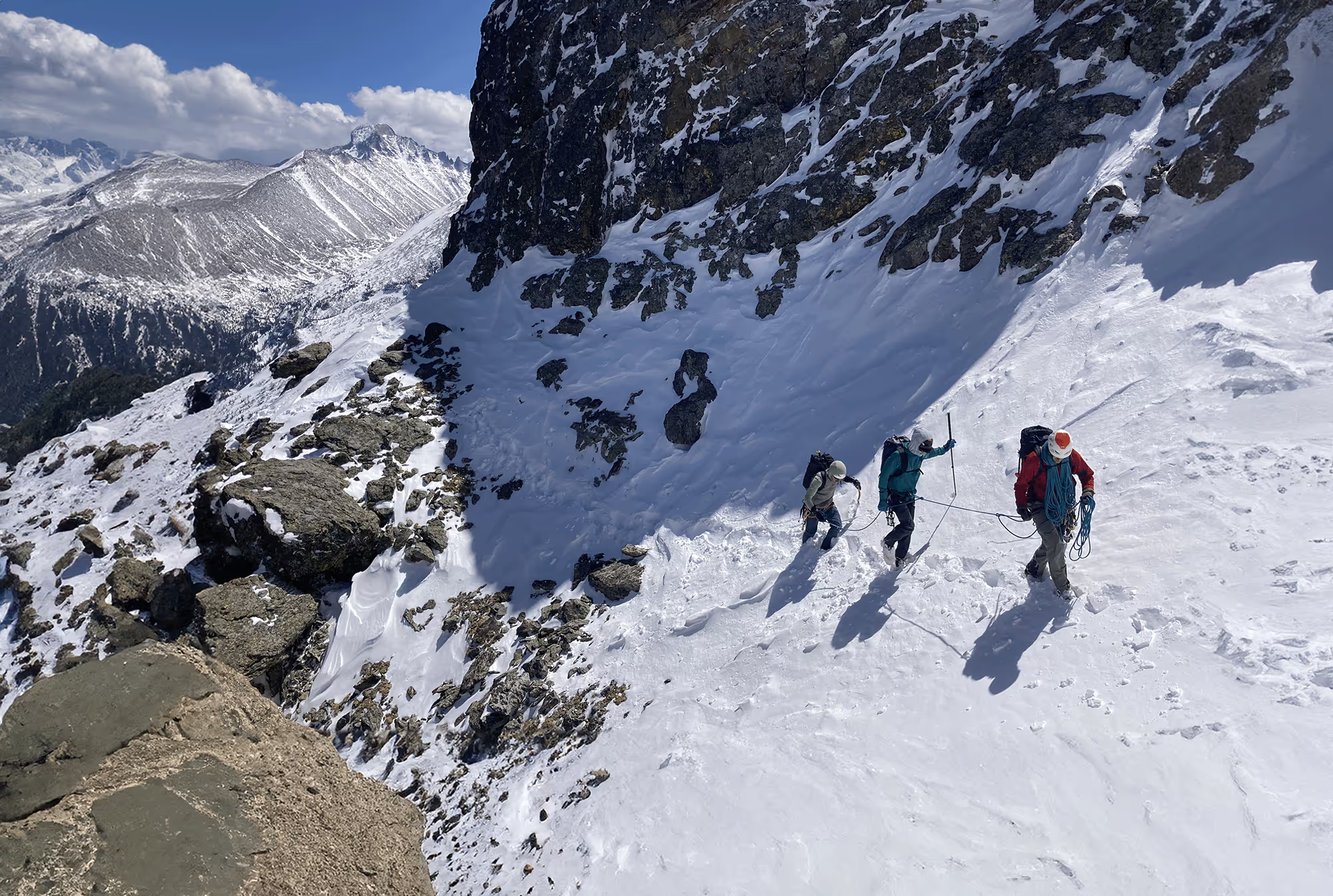
Business Accreditation Program
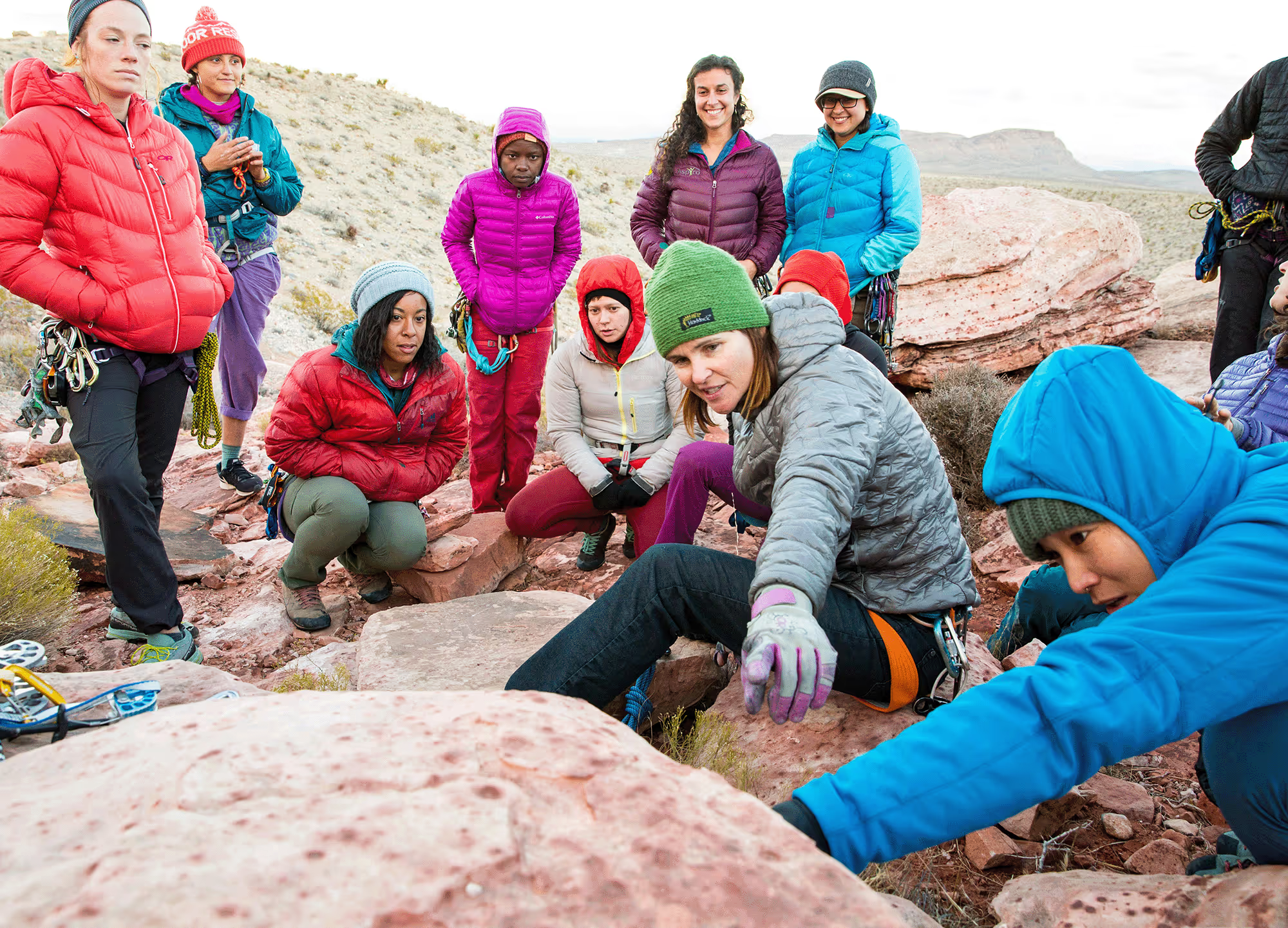
About the Business Accreditation Program
Established in 1986, the AMGA Accreditation Program endorses guide services, climbing programs, and school or university outdoor programs that offer climbing instruction, guided climbing, or skiing services. Accreditation provides a consistent standard for judging the reliability and professionalism of a climbing service by ensuring it:
- Conforms to industry standards;
- Guarantees rigorous and uniform guide training;
- Is compliant with state and federal law;
- Promotes ethical business practices.
Expectations of Accredited Businesses:
- A commitment to high technical standards, strong programs, and a quality staff of engaged and engaging climbing instructors and guides;
- Businesses employ AMGA trained and certified guides and climbing instructors on staff;
- Businesses comply with the AMGA Scope of Practice;
- Businesses provide mentoring and support staff through the AMGA training and certification process;
- Accredited businesses conduct annual terrain specific training utilizing AMGA certified staff members.
Business Accreditation Overview
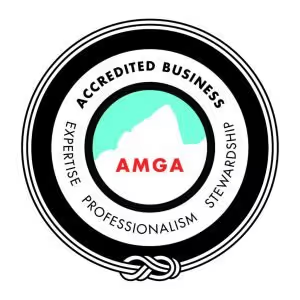
Business Accreditation Program Details
The AMGA Accreditation program evaluates businesses to ensure they meet high industry standards in areas such as risk management, guide training, insurance, compliance, and resource stewardship. This thorough review process verifies that accredited businesses operate with professionalism, safety, and adherence to regulations at all levels.
Accreditation offers numerous benefits, including increased credibility with clients and land managers, improved business practices, and access to AMGA resources. Accredited businesses can run in-house training courses at a lower cost, use the AMGA Accreditation logo for marketing, and gain exposure through the AMGA website. Additionally, accreditation supports access to public lands, demonstrates a commitment to environmental stewardship, and provides advocacy on regulatory and access issues.
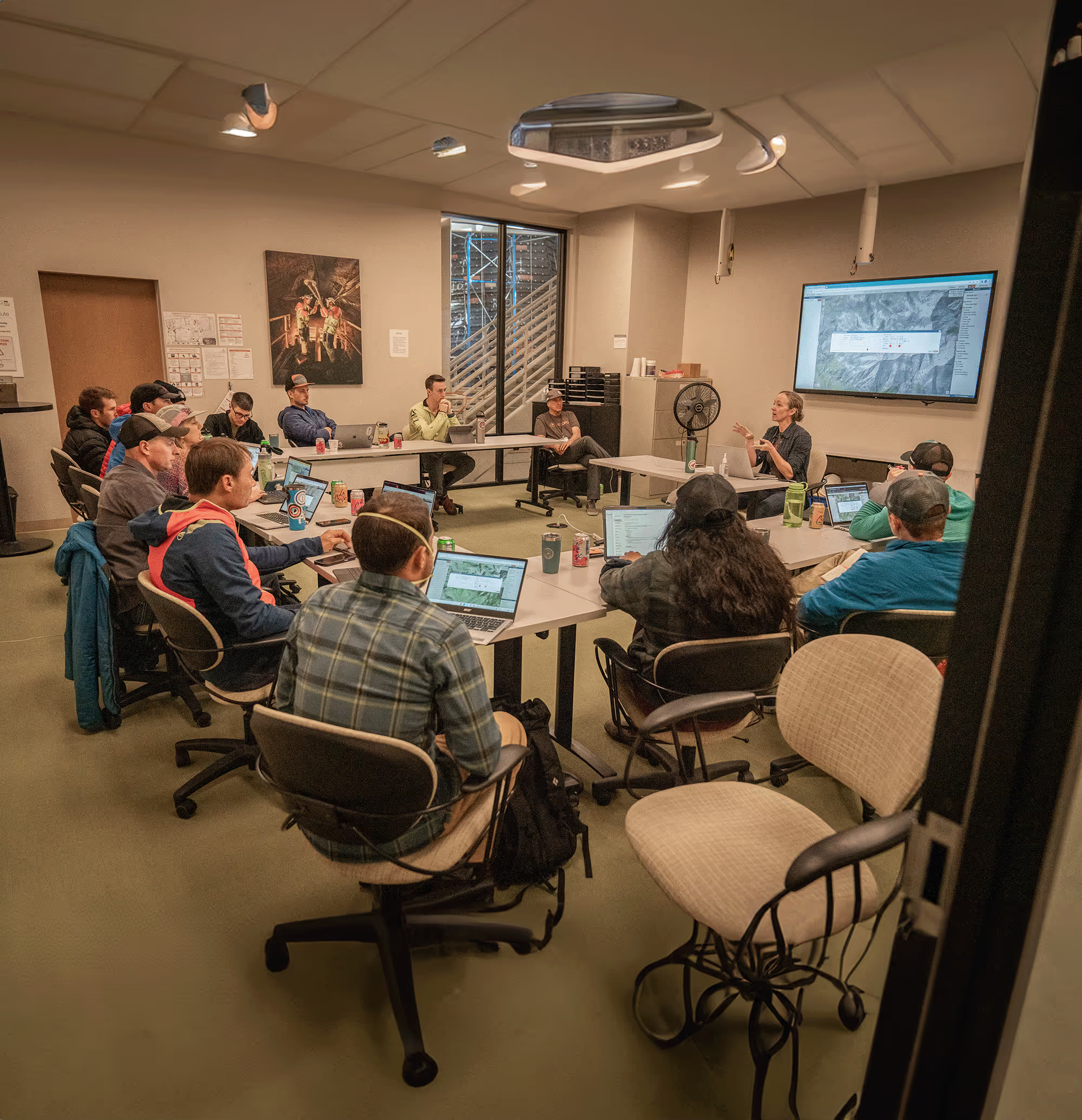
- Accredited Sole Proprietorship/Partnership:
- This type of accreditation is designed for an individual or partnership;
- All staff must hold ownership of the business;
- Staff cannot be employees or independent contractors;
- Owners must be certified at one of the following levels. IFMGA, Rock, Alpine, or Ski Guide, Multi-Pitch, Rock, or Ice Instructor;
- Owners must have been in continuous operation for three full years;
- Owners must have the appropriate land management permits and insurance for their operations.
- Businesses with Employees:
- Accredited Businesses must have a commitment to the mission of the AMGA;
- Accredited Businesses must meet and follow the requirements of the Scope of Practice (SOP);
- The Business must have been in continuous operation with the same owner for three full years prior to the time of application;
- Accredited Businesses must have the appropriate number of AMGA certified guides or instructors to meet the standards for mentoring and supervision; this is determined by the terrain in which the business operates.
- The business must employ a certified guide or instructor for each of the types of terrain in which they operate.
- Accredited Businesses must have the appropriate land management permits and insurance for their operations.
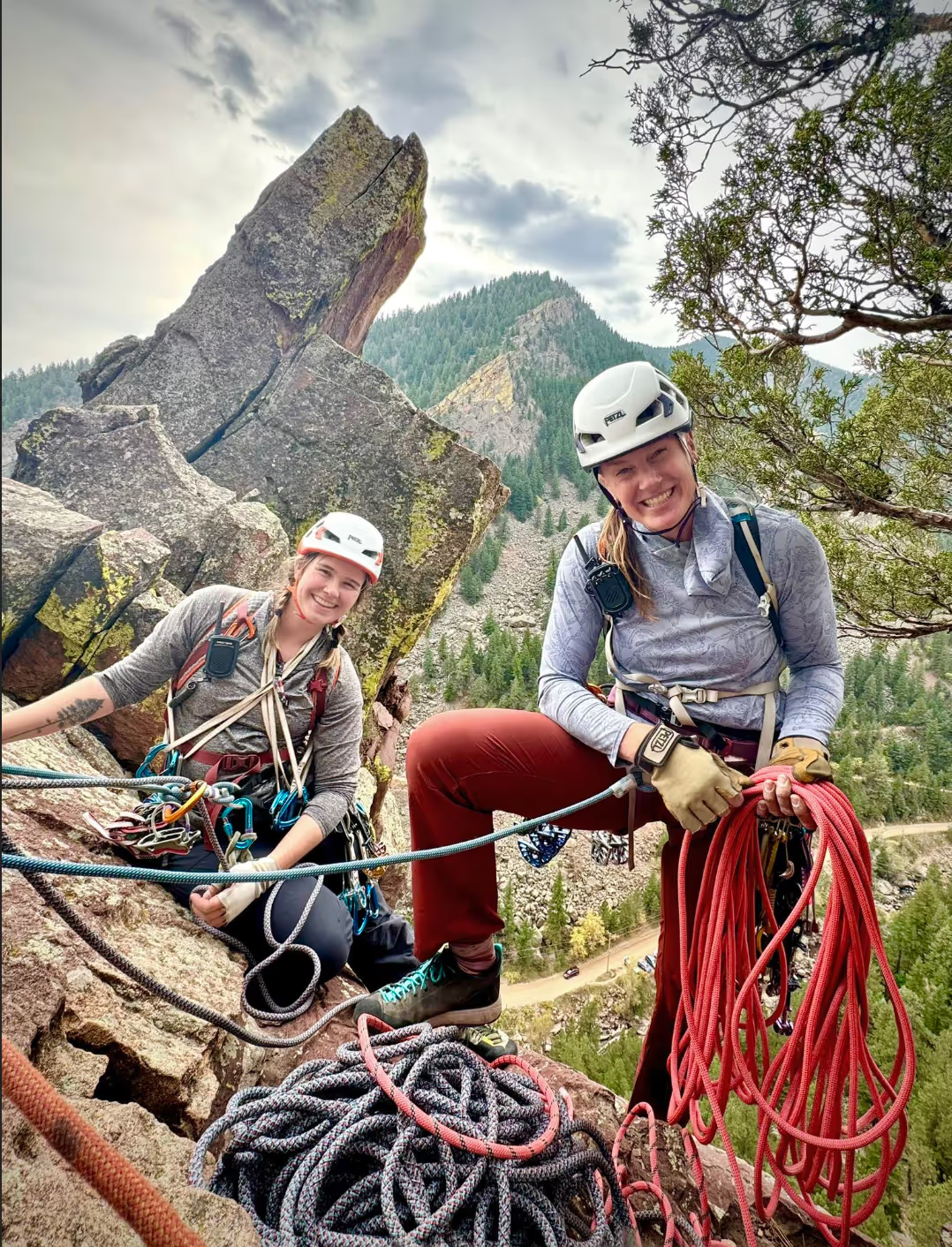
Become an Accredited Business with the AMGA
Contact the AMGA national office to learn more about Business Accreditation.


